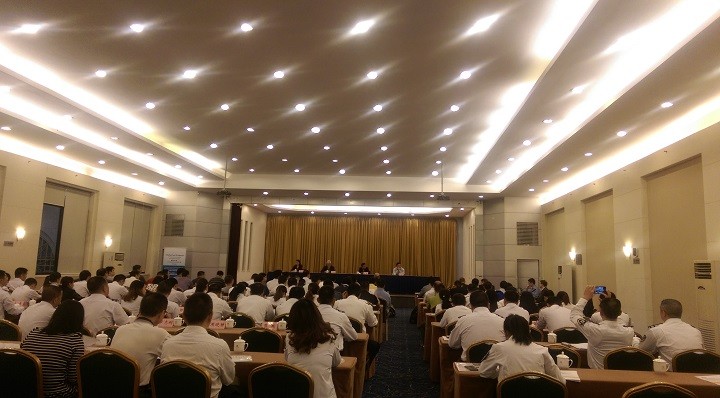
Administrative enforcement of Copyrights: Ministry of Culture Training
On 23-24 September, the Chinese Ministry of Culture will hold its 2nd nation-wide Online Cultural Market Enforcement Training in Chengdu, Sichuan Province. The Ministry has invited IP Key to contribute to this training introducing online copyright enforcement trends in the EU and sharing best practices of case investigation and evidence collection during a one day training session.
Background
The evolution of information technologies has had a significant impact on the environment in which creative industries operate. The development and enforcement of international and national laws and regulations governing copyrights in the digital environment have not kept pace with the speed of these technological evolutions, a challenge which China and the EU have to face and on which much experience can be shared.
Despite of the progress China made in IPR protection in previous years, it is hard for administrative enforcement authorities to determine the type of copyright infringement, location of infringement and to deter infringement because the online dissemination of information occurs on a cross-border (or cross-regional) basis and difficult to identify therefore. The size of the market (in China, CNNIC reports 564 million and 420 million internet and mobile internet users respectively), limited enforcement resources and the time needed for legislative reforms also add to the difficulties of establishing deterrent enforcement mechanisms copyrights online.
The Chinese Ministry of Culture is one of the core ministries in charge of administrative copyright enforcement. It provides guidance to its local Cultural Enforcement Departments (CEDs) on comprehensive administrative enforcement. This training will be attended by around 60 enforcement officials from more than ten provinces as well as municipalities including Beijing, Tianjin, Shanghai and Chongqing.
Technical Content
Jeremy Banks, head of Internet Anti-Piracy of IFPI and Tim Smith, Rouse will cover substantive (conditions of infringement), procedural (i.e. jurisdiction) and organisational (i.e. ISP notice) issues raised by on-line copyright infringing activity. Training sessions will focus on exchanges of experiences and best practices between the relevant European and Chinese copyright enforcement bodies with analysis of leading cases of EU member states
Specific points to be addressed include the following:
Module 1: Copyright enforcement trends in the EU and internationally
· Threats to the creative industries in the digital era illustrated by relevant cases:
- Music industry: unlicensed websites, deep-linking, P2P and pirate apps, search engines, etc:
- Gaming industry: P2P, pre-load piracy, personal servers, circumvention of technical protection measures
- Publishing industry: journal piracy, e-book piracy
· Approach to enforcement
- understand the technology and commercial model
- find the mastermind; find the primary infringer(s)
- understand the knowledge and involvement of the mastermind in the acts of the primary infringer
- how to evidence the primary acts of infringement and the knowledge and involvement of the mastermind
· Countermeasures:
- ISP and ICP liability, with a particular review of website blocking
- TPM, audio fingerprinting, content recognition and filtering technologies
- Limitation and exceptions - and how it doesn't apply in a public communication context
· Sample cases
- Deep-linking – e.g. IFPI v Yahoo! China; MCSC v. Baidu
- ISP liability – e.g. Cooper/mp3s4free
- P2P – e.g. The Pirate Bay
- TPM – e.g. PC Box
Luncheon
Module 2: Investigation and Collection of Evidence
· How to determine cases of online piracy
- Finding online copyright infringement - a summary of the types of infringement and generic ways of dealing which each type
- Investigating online infringement - identifying the offence, how to trace site owners using both online tools and open source intelligence gathering/pretesting, how to remain anonymous online, etc.
· Collection and processing of evidence / disclose of information
- Building an online investigation - test purchase, personal enquiry checks, tracing the money trail, building an evidence pack, placing a case with enforcement
- Working with other brand/IP owners and overseas affiliates
NTD procedures
· Handling of Cases
- Remedies (including damages)
- Cross-institutional cooperation
- Cross-border enforcement
